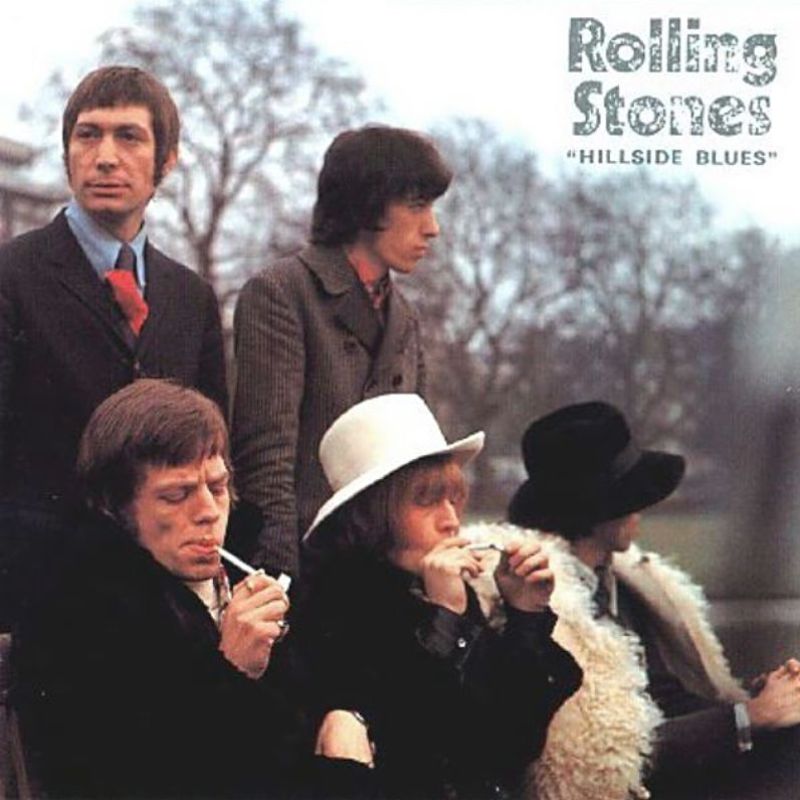Canned Heat was started by a community of blues enthusiasts who used to meet up to trade blues records, and in 1965 they decided to form a jug band. The original line up was Bob Hite as vocalist, Alan Wilson on bottleneck guitar, Mike Perlowin on lead guitar, Stuart Brotman on bass and Keith Sawyer on drums. Perlowin and Sawyer dropped out within a few days, so guitarist Kenny Edwards (a friend of Wilson's) stepped in to replace Perlowin, and Ron Holmes agreed to sit in on drums until they could find a permanent drummer. Another of Hite's friends, Henry Vestine asked if he could join the band and was accepted while keeping Edwards on temporarily. Soon Edwards departed and at the same time Frank Cook came in to replace Holmes as their permanent drummer. Producer Johnny Otis recorded the band's first album in 1966 with the ensemble of Hite, Wilson, Cook, Vestine, and Brotman, but the record remained unreleased until it was issued in 1970 under the title of 'Vintage Heat'. Over a summer hiatus in 1966 Brotman effectively left Canned Heat after he had signed a contract for a long engagement in Fresno with an Armenian belly-dance revue, so he had to be replaced, with Mark Andes taking over for a couple of months before he returned to his former colleagues in the Red Roosters (later adopting the new name Spirits Rebellious, which became shorten to Spirit). Canned Heat finally found a permanent bassist in Larry Taylor, who joined in March 1967, and this line-up started recording their first album for Liberty Records in April 1967, taping a collection of old blues songs. They released 'Rollin' And Tumblin'' backed with 'Bullfrog Blues' as their first single, followed by the album later in July 1967. Frank Cook then left the band, to be replaced by Adolfo de la Parra, completing the classic and perhaps best known Canned Heat lineup. Their second album 'Boogie With Canned Heat' included 'On The Road Again', an updated version of a 1950's composition by Floyd Jones, which was a worldwide success when it was released as a single. The album also included a twelve-minute version of 'Fried Hockey Boogie', credited to Larry Taylor, but rather obviously derived from John Lee Hooker's 'Boogie Chillen' riff, and which allowed each member to stretch out on his instrument while establishing them with hippie ballroom audiences across America as the 'kings of the boogie'.
In October 1968 the band released their third album 'Living The Blues', which included 'Going Up The Country', another huge hit single and perhaps their best-known song. The album also included a 19-minute experimental track 'Parthenogenesis', which was a nine-part sound collage of blues, ragas, jaw-harp sounds, guitar distortion and other electronic effects, all pulled together under the direction of manager/producer Skip Taylor. Longer still is 'Refried Boogie', clocking in at over 40 minutes, and recorded live at the Kaleidoscope club. In July 1969, just prior to their appearance at Woodstock, they released their fourth album 'Hallelujah', enforcing their reputation as the most convincing of the white electric blues groups. This time most of the material was original compositions, with lyrics relating to the band such as Wilson's 'Time Was', but within days of the album's release, Vestine left the group after an on-stage blow up at the Fillmore West between himself and Larry Taylor. The next night both Mike Bloomfield and Harvey Mandel jammed with the band, and both were offered Vestine's spot in the line-up, with Mandel accepting. The new lineup played just two dates at the Fillmore before appearing at Woodstock in mid-August, where they played their most famous set at sunset on the second day of the festival. Before their European tour in early 1970, the band recorded 'Future Blues', an album containing five original compositions and three covers, with 'Let's Work Together' being chosen as the first single from the record, and with a guest appearance of Dr John on piano. Some controversy was sparked by the moon landing/Iwo Jima album cover, and the upside down American flag, which was Wilson's idea, and was a response to his love of nature, growing environmentalism and concern that humankind would soon be polluting the moon as well as the Earth. Material from their 1970 European tour provided the tracks for 'Canned Heat '70 Concert Live in Europe', later retitled 'Live In Europe', but on returning home from the European tour Larry Taylor left the band to join John Mayall, and was followed later by Mandel. With Taylor and Mandel gone, Vestine returned on guitar, accompanied by bassist Antonio de la Barreda who had played with de la Parra for five years in Mexico City, and the band went on to release another dozen albums over the next 40 years, but for me their best period was between 1967 to 1970, and during that time they recorded a number of tracks which didn't see the light of day until added to deluxe re-issues of those early albums. As well as these rare recordings they also released a few non-album singles and b-sides, so to remind us of what a great band they were, here is a collection of hard to find recordings from their classic period.
Track listing
01 The Hunter (previously unreleased 1968)
02 Christmas Blues (single 1968)
03 Whiskey And Wimmen' (previously unreleased 1968)
04 Shake, Rattle And Roll (previously unreleased 1968)
05 Fannie Mae (previously unreleased 1968)
06 Gotta Boogie (The World Boogie) (previously unreleased 1968)
07 Human Condition (early version - previously unreleased 1970)
08 Poor Moon (single 1969)
09 Low Down (And High Up) (b-side of 'Time Was' 1969)
10 It's All Right (previously unreleased 1970)
11 Wooly Bully (single 1970)















